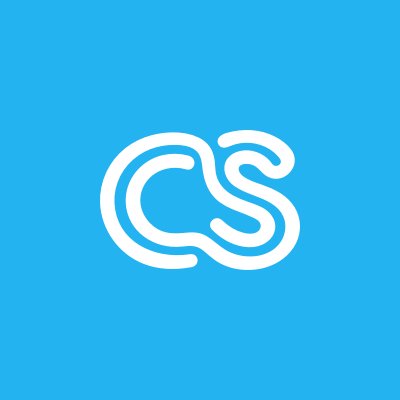The Science of Bad Decisions and How You Can Avoid Making Them

You are not alone if you’ve recently made a bad decision (or a baker’s dozen of them). Not a single person is immune from making bad decisions.
Humans make mistakes. Let’s face it, even though we often deny it; we have inherently imperfect judgment. Anxiety, stress, and fear can easily distort our choices. In fact, it’s much too easy to make bad decisions in the competitive and strenuous world of small businesses and startups. Often, we don’t even know whether our decision is good or bad. This is because the aggregate total of the decisions we make throughout the day impacts our ability to clearly see the upsides and downsides of some of the decisions we must make. The more decisions we must make, the more likely we’ll make bad decisions.
Realistically, not all bad decisions are detrimental and crazy, but it is in our best interest to make smarter decisions. After all, we don’t always learn from our mistakes.
With such high stakes, why aren’t people more careful and make smarter decisions?
A recent study, Decision Fatigue Exhausts Self-Regulatory Resources — But So Does Accommodating to Unchosen Alternatives, highlights the importance of being selective when making decisions.
In five studies, participants who made a series of choices regarding consumer products, college courses, or course materials subsequently showed poorer self-regulation (measured in terms of task persistence, task performance, and pain tolerance), as compared to people who viewed or rated similar options without making choices.
Essentially, the researchers confirmed that the more choices or decisions people had to make in a short amount of time, the worse their future decision-making and general productivity became.
Blogger James Clear echoes these sentiments in a blog post for his blog where he explores several case studies on this subject:
In fact, you may be surprised just how much small daily decisions impact the willpower you have for important choices. And most importantly, it turns out there are simple choices you can make that will help you master your willpower and make better decisions on a more consistent basis.
Clear uses the analogy of willpower in decision-making to be similar to a muscle – too much use and it will become very tired and have difficulty recovering, but too little use and it will be rusty and out of shape. He suggests that when the decision-making muscle gets tired, we are likelier to make bad decisions, just as a fatigued muscle is more prone to injury than a healthily worked one.
Importantly, the art of avoiding a bad decision lies in the art of avoiding decision fatigue.
But how can you avoid decision fatigue?
Fortunately, there are a couple of ways to avoid decision fatigue, just as there are ways to prepare your muscles and train them not to become fatigued as quickly.
Free Business Startup Kit
Receive six actionable guides, including a how to start a business checklist, detailed comparisons of LLCs, corporations, sole proprietorships, and partnerships to determine the best fit for your business, plus insights on crafting a compelling pitch deck to attract investors.

- How to Start a Business Checklist
- Starting a Corporation Guide
- Is an LLC Right for You?
- Starting a Sole Proprietorship
- Starting Business Partnerships
- Creating a Powerful Pitch Deck
One method is to make all of your important decisions first – so that the damage is slightly less because the other decisions aren’t as important. Even better, any small decisions that can be moved or put off to another day should be – because every detail can potentially matter in the business world. Good leaders delegate and trust and also understand when an employee needs some extra time (within reason).
Making important decisions earlier in the day can help us avoid flaws with pattern-recognition, which enables us to make decisions. Our brains rely on memories from past experiences to help us make decisions. But sometimes, past experiences can mislead us to conclude that our past experiences match the current situation well. In effect, we misjudge the information we’re receiving. As we get more tired throughout the day, it’s much easier to make this mistake.
Properly ordering important decisions first also helps because important decisions tend to be more emotional. Dr. Antonio Damasio, a neuroscientist and professor at USC and the Salk Institute, in his book, Descarte’s Error, suggests that we make decisions not only based on fact and logic, but on stored emotional memories that remain covert. We can tolerate a certain level of emotion throughout the day, but when our emotional response is amplified, this has a negative impact on our decision-making.
Be careful, however, if you take too long to make decisions, especially early in the day, this may impact your confidence. Dr. Roozbeh Kiani, an assistant professor in NYU’s Center for Neural Science found that “additional time is useful only if it adds to the overall evidence that is used for the decision.”
Additionally, always look to filter out unnecessary “noise”. This is important because we tend to over-rely on social cues. Researchers from the University of Exeter discovered that over time, we listen too much to cues from others and this impacts our information processing and ability to make good decisions. This is OK for simple decisions such as what type of mobile phone you should buy, but gets messy when it comes to more complex decisions.
Copying what other individuals do can be useful in many situations, such as what kind of phone to buy, or for animals, which way to move or whether a situation is dangerous. However, the challenge is in evaluating personal beliefs when they contradict what others are doing.
While it’s important to be informed prior to making a decision, there is such a thing as being too informed. With too much information, the decision making process can become cloudy and complicated. The simpler the decision is, the more likely a good choice can be made. And if it’s too difficult to simplify, or you find yourself making the same or a similar decision multiple times, it might be more of a commitment or a goal rather than a decision. Things like doing more one-on-one meetings with your employees or sending monthly updates to your investors are tasks that don’t need to be contemplated every day, they should just become habitual. The more you can take off of your decision making plate, the easier it will be to combat the fatigue and properly train and build up your ability to make decisions.
Trust me, it’s easier said than done. It can be pretty difficult to even identify when you are starting to suffer from decision fatigue, let alone identify a bad decision before any consequences occur. But most people have a pretty good built-in barometer for detecting decision fatigue: it’s when you start answering “I don’t care” or “You choose” without thinking about why you are delegating or avoiding. If you’re scared, then maybe this was an important decision that should have been thought about earlier in the day before other decisions were made. But if you’re frustrated, then chances are you just don’t have any more capacity to decide.
No matter what, once you can identify and stop this fatigue, you will be more alert and attuned to good decision-making.
Image credit: visiondrops
Design Done Better
The easiest way to get affordable, high-quality custom logos, print design, web design and naming for your business.
Learn How to Grow Your Business With Beautiful Design

